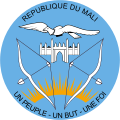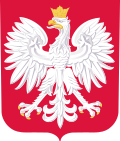 | |
Mali | Poland |
|---|---|
Poland recognized Mali in 1960, shortly after the Malian declaration of independence, and afterwards the countries established bilateral relations. They signed a cultural cooperation agreement in 1961. [1]
Contents
In 1999, Malian President Alpha Oumar Konaré paid an official visit to Poland. [2]

